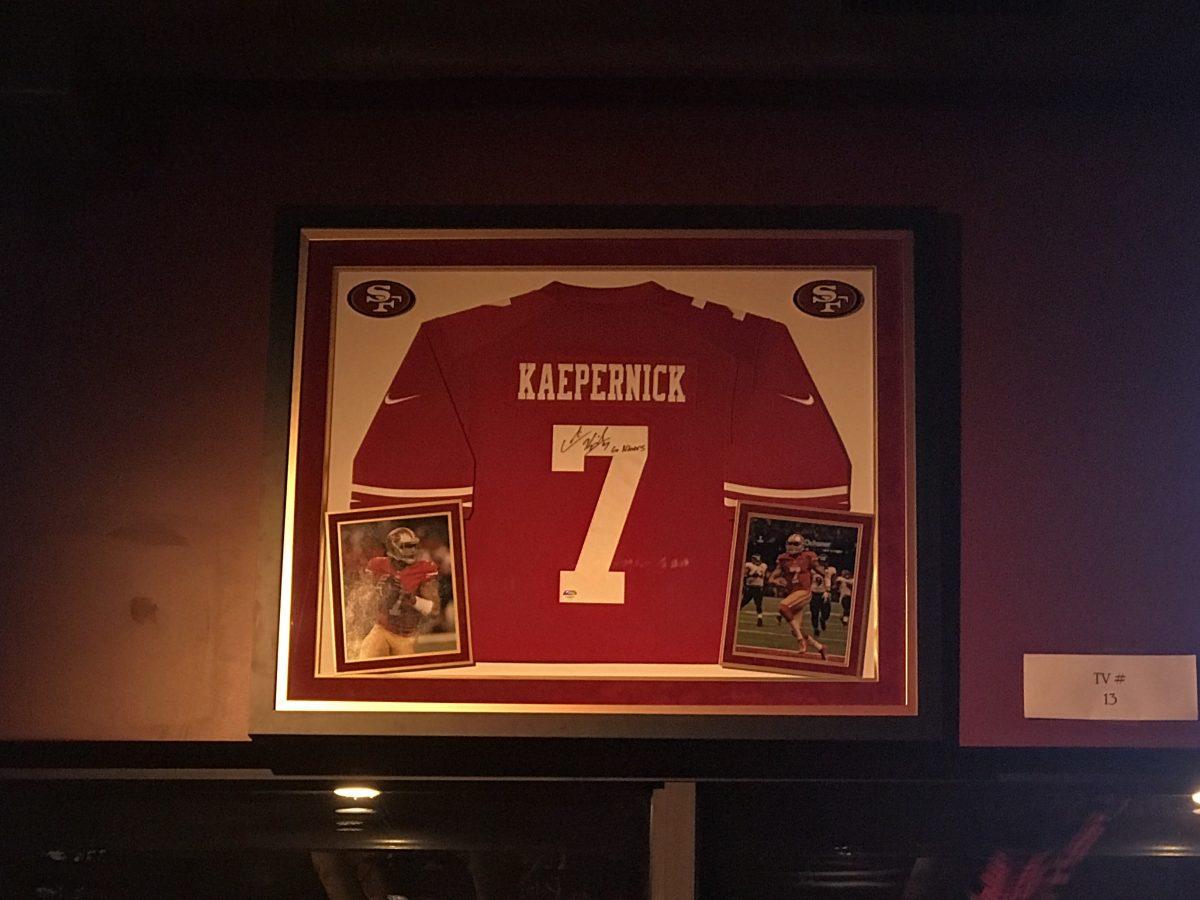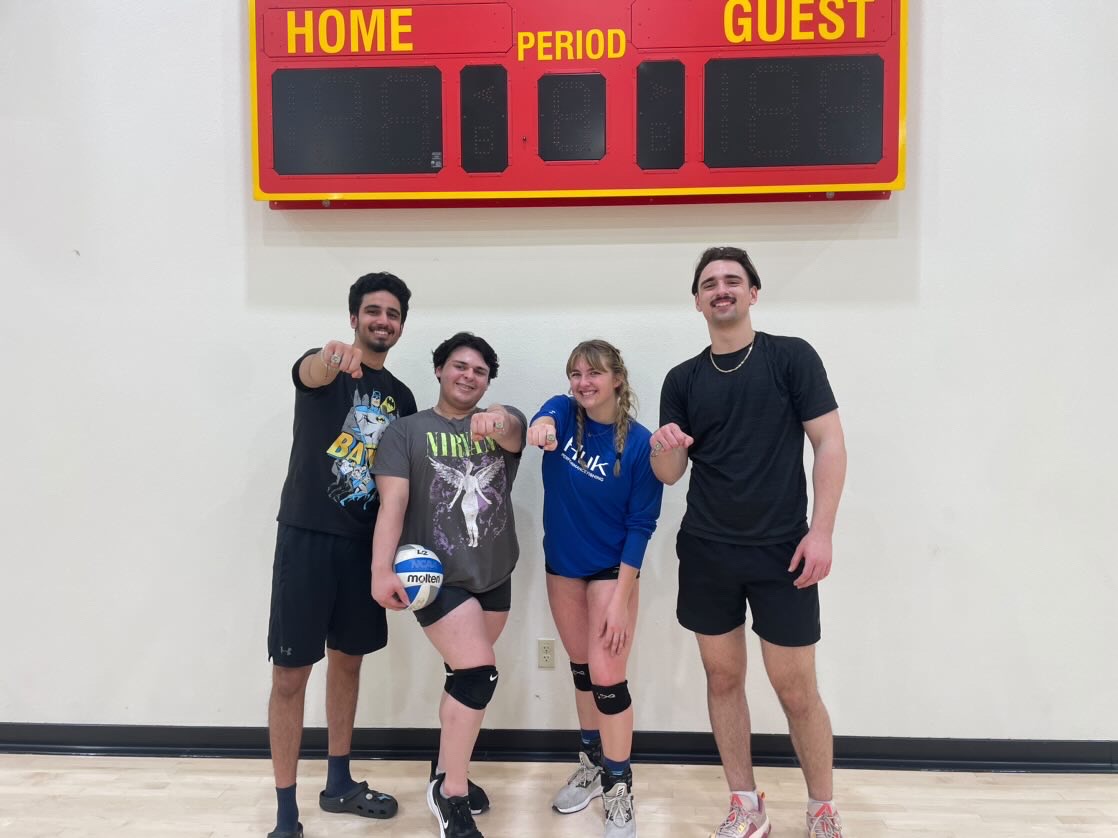A little over a year ago in August, Colin Kaepernick began kneeling during the National Anthem as a way to draw attention to violence against minorities at the hands of law enforcement officers. This simple demonstration has since sparked one of the largest movements in professional sports history with athletes from diverse backgrounds joining the cause, and it also may have cost Kaepernick an NFL contract.
Aug. 26, 2016 was the day that people began to take notice of Kaepernick’s message, and slowly but surely, he sparked a fire. 49ers teammate Eric Reid and division rival Jeremy Lane were among the first brave few to publicly take a knee in support of the cause. A year later, nearly a dozen players were regularly kneeling from Michael Bennett to Malcolm Jenkins.
It was Bennett and Jenkins, along with Torrey Smith and Anquan Boldin, who penned a letter to NFL Commissioner Roger Goodell asking for the league’s support for their platform of equality and ending violence against minorities. Part of their goal is for the league to recognize November as national activism awareness month.
The modest fire sparked by Kaepernick was fully ignited this past Saturday following President Donald Trump’s incendiary remarks regarding NFL players and owners.
“Wouldn’t you love to see one of these NFL owners, when somebody disrespects our flag, to say, ‘Get that son of a b—- off the field right now. Out. He’s fired. He’s fired!” Trump proclaimed.
Following Trump’s comment, hundreds of NFL players, owners and even the commissioner showed their support in one way or another. The Titans and Seahawks both remained in the locker rooms at Nissan Stadium during the anthem, as did the majority of the Steelers, aside from Army veteran Alejandro Villanueva (his teammates supported his decision). The Cowboys kneeled alongside team owner Jerry Jones, and rose to their feet when the anthem began. Those who didn’t kneel chose to lock arms in a show of solidarity.
Kaepernick’s simple act of kneeling has proved that non-violent protests can serve as the catalyst for difficult, albeit necessary, conversations. MiShaye Venerable (junior, Social Sciences), a student athlete and president of the Black Student Union, elaborated on the impact kneeling during the anthem has had.
“Has it served awareness? Absolutely. It has definitely gotten people talking, no doubt about it, which was kind of the whole point. He didn’t just stop there, which is what a lot of people think, he went out and donated to different organizations to help black youth and black communities. It’s going to continue to open up dialogue which is the first step, then taking action to find a solution, and having allies because we can’t do this on our own. It’s not us against the world,” Venerable said.
Along the way, Kaepernick’s intended message has been distorted from raising awareness and giving a voice to a group of people who are fighting racism, to blatant disrespect of our nation’s flag. Venerable offered a potential solution to return Kaepernick’s original sentiment.
“You have to see the other side, for those people actually affected, what’s their backstory. Exchanging dialogue instead of totally bashing each other. At the end of the day we can’t do this alone, we can’t create change by ourselves, we do have to come together,” Venerable added.
Once considered an elite NFL quarterback, this season Kaepernick is noticeably missing from an NFL sideline. It’s neither injury nor ability keeping him off the field. According to Casey Pratt of ABC Bay Area News 7, there are not currently 32 starting quarterbacks in the league with more winning potential than Colin Kaepernick.
“Kaepernick had 16 touchdowns (TD) and just 4 interceptions (INT) on a miserable 49ers team last season. He had zero playmakers around him and still put up numbers,” he stated.
The right fit for Kaepernick could be with teams like the Seattle Seahawks or the Cleveland Browns that already have an offense built around a mobile quarterback, a role that he could fill incredibly well. However, in the case of Seattle, Russell Wilson, their starting quarterback, has remained healthy and has continued to play at an elite level.
Kyle Madson, managing editor of Titans Wire, an offshoot of USA TODAY Sports, offered some insight as to why Seattle passed on Kaepernick.
“Pete Carroll went as far as to say they viewed Kaepernick as a starter, which is why they didn’t bring him in as their backup quarterback,” Madson said.
Given the opportunity to join an NFL team, Kaepernick could prove to be an asset, and could potentially help propel a team to postseason.
“He’s been growing as a passer over the last couple seasons and the notion that the offense needs to be totally warped to make him successful is incorrect. He can throw from the pocket, he has tremendous arm strength, and he can make plays with his legs when plays break down. There are several teams (Arizona and Jacksonville off the top of my head), that would become instant playoff contenders with Kaepernick under center instead of their current quarterback,” Madson added.
Whether Kaepernick will grace the turf on an NFL field this season remains to be seen, but the idea that he is somehow incapable of being a competitor doesn’t ring true. He has shown growth as both a football player, and as a person.
“I don’t think it’s a correct sentiment, but I think team owners view him as a distraction. A threat. They think he isn’t worth the trouble. In reality, Kap is donating money to charity, working with the youth, and was even named the best teammate on the 49ers last season,” Pratt expressed.
Categories:
Kneeling for a cause
Contributing writer Taylor Hensley
•
September 29, 2017
0
More to Discover






